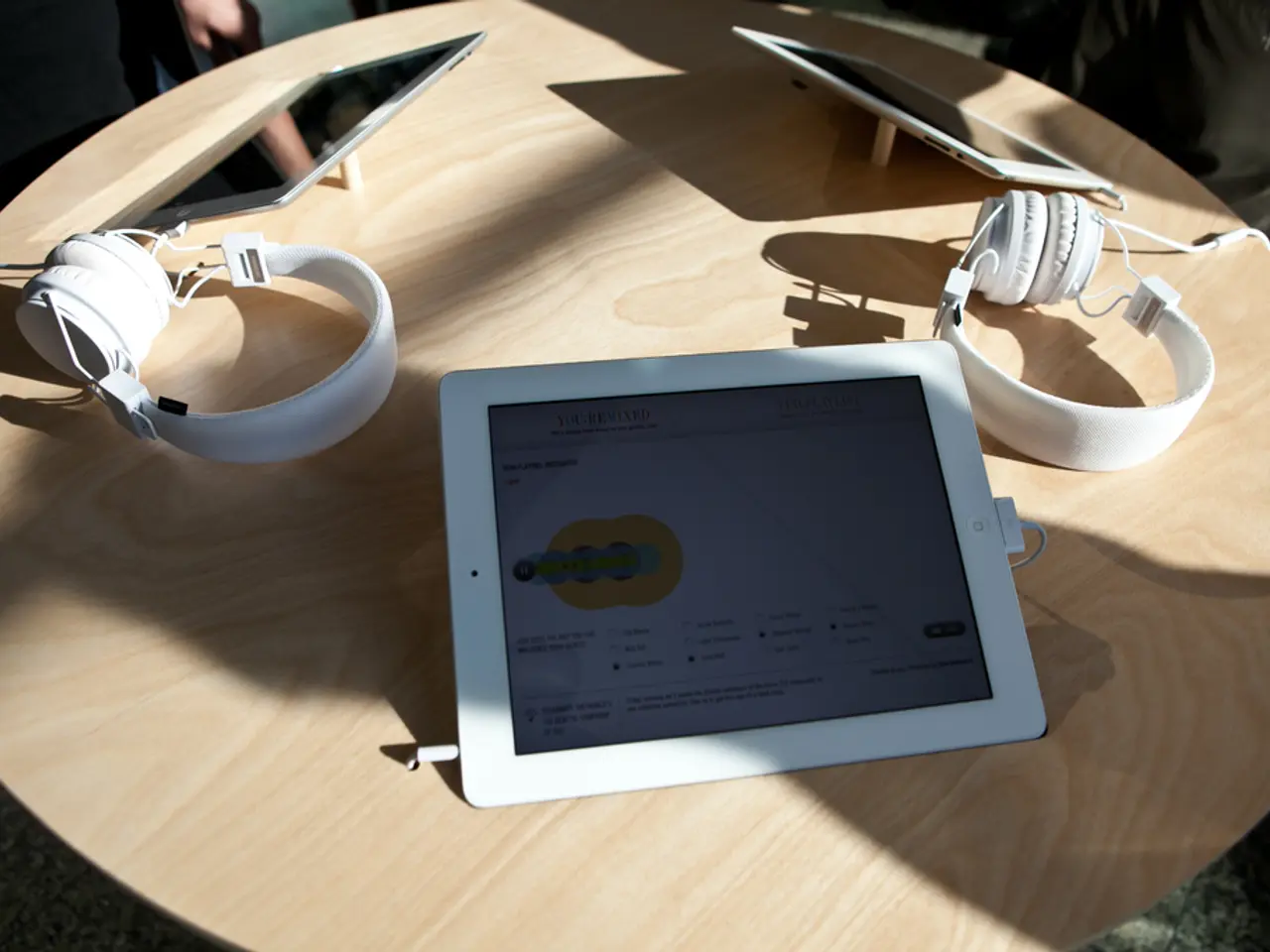Debit cards continue to thrive amidst the expansion of payment options.
In the ever-changing world of finance, debit cards are experiencing a surge in popularity, driven by convenience, security improvements, and macroeconomic factors such as income disparity and inflationary pressures.
Debit Card Usage Trends
Consumers are increasingly preferring debit cards for everyday purchases, particularly goods like groceries, where they are 67% more likely to opt for debit over credit cards. The primary factor driving this trend is convenience, with consumers being twice as likely to choose debit cards for ease and speed compared to other reasons like budgeting[1]. Debit card spending saw a 3.6% increase recently, largely due to consumer shifts towards tangible goods purchases using debit[4].
Rewards and Strategic Use of Cards
While debit cards are favoured for their convenience, credit cards still hold an edge when it comes to strategic spending to maximize rewards. Consumers are 60% more likely to use credit cards for in-store purchases when rewards are available rather than for convenience[1]. This highlights a bifurcation where debit is preferred for efficiency and credit for reward optimization.
Market Expansion and Macroeconomic Response
The growth in debit card use corresponds with increased adoption of digital wallets and embedded payment systems, enhancing convenience and security for both consumers and merchants. Merchants, in particular, benefit from embedded payment systems that integrate hardware and software, reducing errors and streamlining processing while boosting transaction security through end-to-end encryption and 24/7 monitoring[5].
Spending trends reveal that lower-income households, which have weaker after-tax wage growth, show negative YoY growth in card spending, while higher-income households maintain or slightly increase spending. This suggests market expansion efforts may need to focus on affordability and inclusivity amid wage disparities[2]. Payment failures have declined by 27% over two years, and fraud rates remain stable and low (<10%), indicating effective risk mitigation by financial institutions, which helps sustain consumer confidence and usage growth[1].
Additional Context
While debit card usage is rising with goods purchases, services spending has seen a slight decline recently, reflecting a cautious approach to discretionary spending as consumers manage inflationary pressures[2][4]. Digital payment methods continue to evolve with trends such as mobile wallets, biometric payments, and real-time payments gaining traction, further shaping how debit cards are used and integrated into the broader payments ecosystem[5].
The Future of Debit Cards
BNPL companies are reaching out beyond their roots with the goal of becoming full-service financial providers. Companies as diverse as Wyndham Hotels and Kraken crypto exchange have also entered the debit card market. Many Gen Z consumers, digital natives who have established relationships with fintechs like Venmo and Cash App, are embracing these new offerings[6]. Klarna has recently launched a debit card as part of its efforts to expand its financial product offerings[7].
There has been an increasing trend of debit card providers offering rewards, although these may not be as extensive as credit card rewards. Elisa Tavilla, Director of Debit Payments at Javelin Strategy & Research, believes that we will see more diversification of debit products, especially with younger consumers[8]. As the world navigates economic uncertainties, debit cards are likely to remain a top choice for consumers seeking convenience, security, and rewarding financial experiences.
[1] Source: Javelin Strategy & Research [2] Source: Federal Reserve Bank of St. Louis [3] Source: Mastercard SpendingPulse [4] Source: Nilson Report [5] Source: Javelin Strategy & Research [6] Source: Business Insider [7] Source: Klarna Press Release [8] Source: Elisa Tavilla, Director of Debit Payments at Javelin Strategy & Research
Technology advancements in the fintech industry are fueling the growth of debit card usage, with new offerings from BNPL companies and digital natives like Wyndham Hotels and Kraken crypto exchange entering the market [6]. As a result, debit cards are likely to become more versatile, offering rewards and additional features to attract younger consumers [8].
The strategic integration of debit cards into digital wallets and payment systems provides improvements in convenience, security, and the potential for enhanced personal-finance management, as embodied by the new debit card offerings from BNPL companies [7]. In the ever-changing world of finance, the increasing popularity of debit cards, driven by multiple factors, offers a fertile ground for growth and diversification in the industry and the realm of technology.




